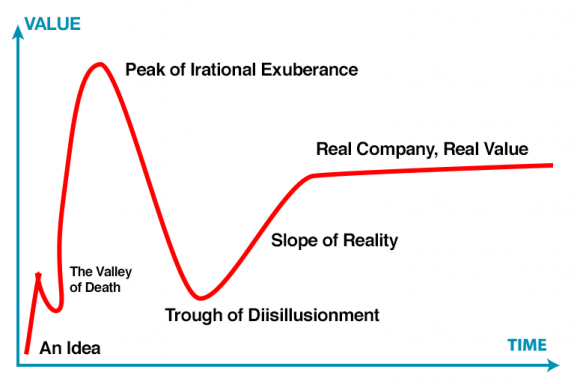
Most of the entrepreneurs I work with have yet to raise money from an Angel or investment fund (venture capital or debt or any formal institution). It is daunting to sit (face-to-face or online) across the table from an investor, as investors know more about the process of investing than entrepreneurs.
Life on the investor side of the table isn’t as easy as entrepreneurs think. The asymmetric knowledge runs both ways. While investors tend to know more about business in general and investing specifically, entrepreneurs tend to know more about their markets and certainly know more about the challenges in those markets than the investors.
In these conversations, the challenge for entrepreneurs is to convey the investment opportunity in a compelling fashion, and to answer the investor’s questions with the clarity, conciseness, and confidence. This is typically where entrepreneurs fall down. Too often entrepreneurs fall back on their misguided belief that they have the best idea and best company in the world, and that it’s the investor’s fault for not understanding and not agreeing with that belief.
Entrepreneurs need to remember that there are far more startups seeking capital than investors actively investing. That has probably been true since civilization began and crowdfunding and the internet in general have yet to change that fact. So no, sorry, there simply isn’t a best idea or best startup, just yet-another startup raising capital that may or may not be a good fit for the investor being pitched.
As for the pitch, I cover that in detail in my slide-by-slide guide through the standard pitch.
In the past few months, none of my investments included that style of pitch. Instead, they’ve all either been from Africa Eats to companies I already know, or from the new TerraFund into a mix of companies I met through The Land Accelerator and companies new through the fund’s dealflow.
These conversations are a layer down from the pitch, digging into the last few years of financials, digging into the challenges of growing companies during a global pandemic, and digging into the aftermath of the Realities of Funding startups in Africa.
Most of these conversations have been fun for both sides, as fundraising has been good on the funding side and with that, over $2 million has been signed and wired out to these entrepreneurs in the first 80 days of 2022. Most of that speed is due to already knowing most of the investees. The trust built up from business accelerators is the best lubricant I know of in moving capital out of funds and into companies.
Ultimately, trust is the core of all investments. Investors have to trust that the entrepreneurs and their startups will wisely use the money entrusted to them, and trust that someday that money will get returned, with some gains on top of the original investment. For entrepreneurs reading this, put that fact in the back of your mind the next time you are pitching, and make it clear why the investor can trust you above and beyond your best-ever idea and world-class team.














